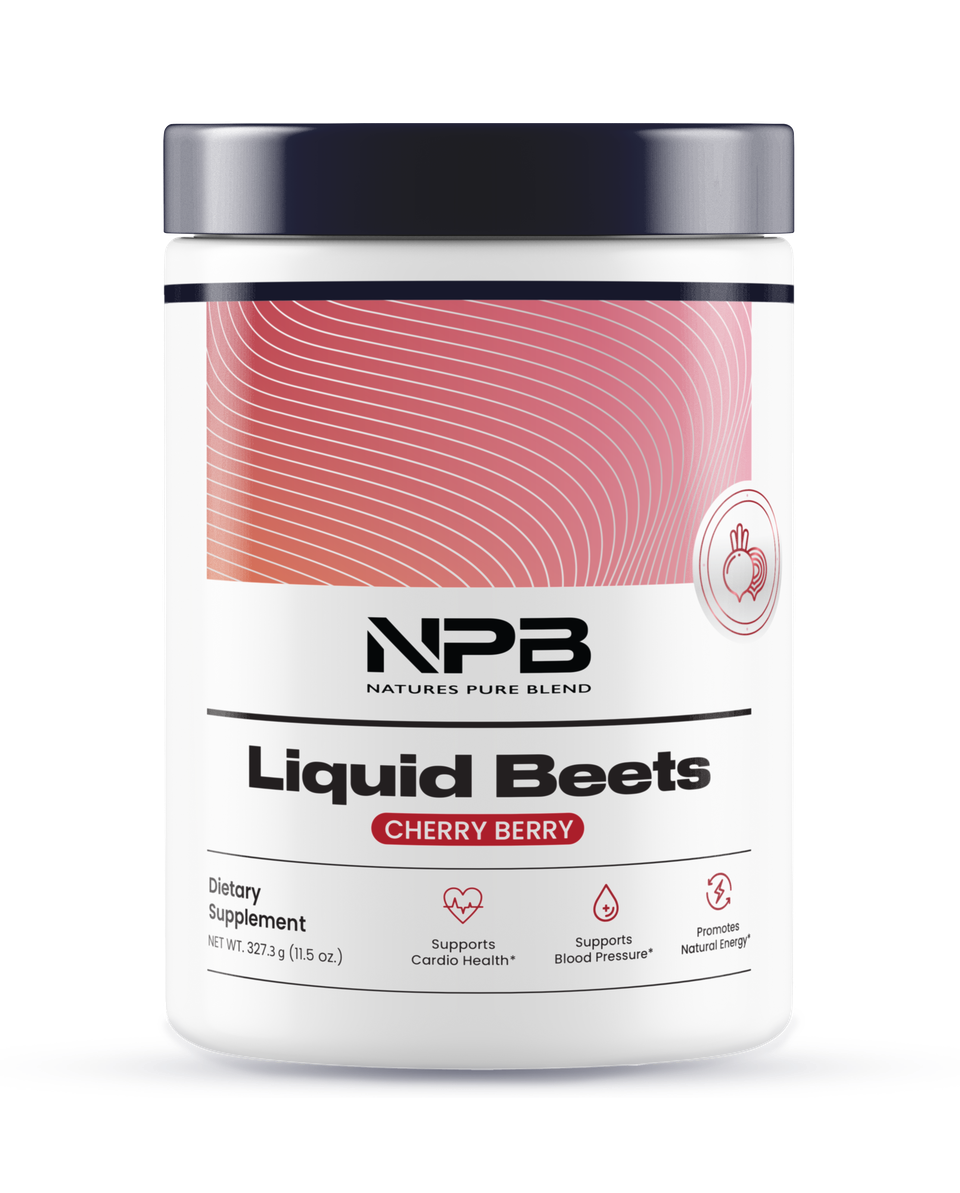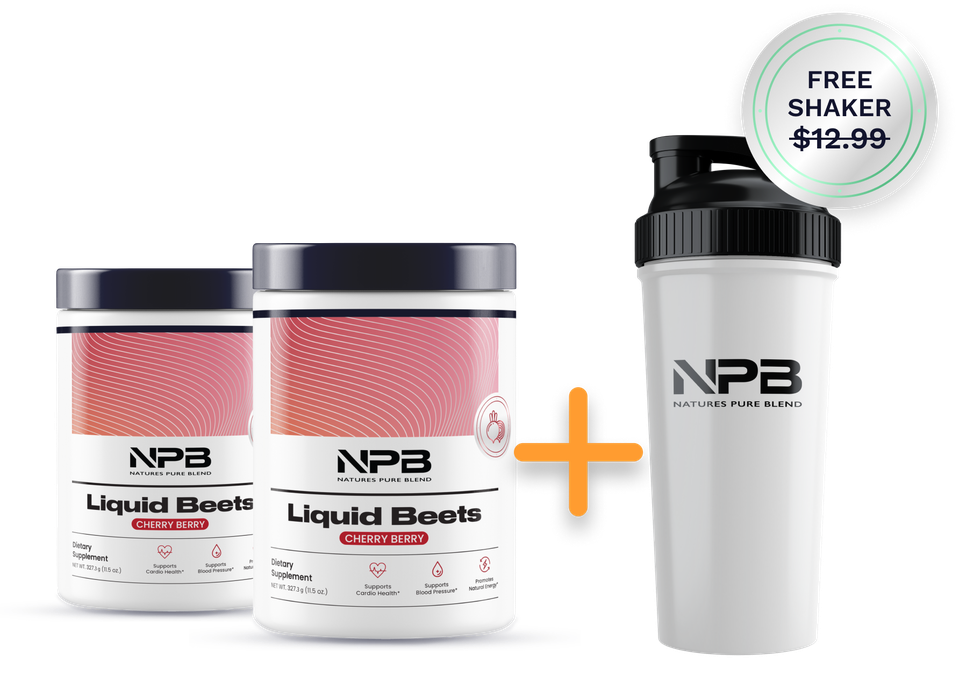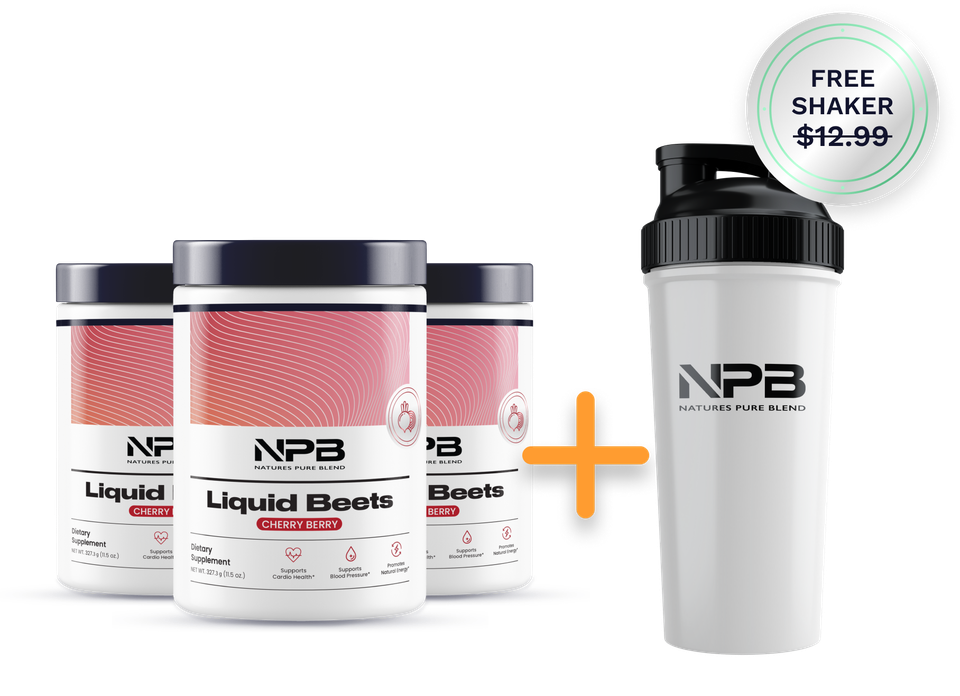Get Free Shipping On Orders $99+
8 Day-To-Day Habits Causing High Blood Pressure
High blood pressure, or hypertension, is a prevalent health condition affecting millions worldwide. Often referred to as the "silent killer," hypertension usually shows no symptoms until it becomes severe and poses significant risks to cardiovascular health.
While genetics and age can play a role in developing high blood pressure, several day-to-day habits and lifestyle choices can also contribute to its onset. We'll explore eight common day-to-day habits that may unknowingly lead to high blood pressure.
1. Sedentary Lifestyle:
Living a sedentary life with minimal physical activity can significantly impact blood pressure. Regular exercise helps keep the cardiovascular system healthy, improving blood flow and reducing the risk of hypertension. Most days of the week, incorporating at least 30 minutes of moderate-intensity exercise, such as brisk walking or cycling, can make a significant difference. 1
2. Unhealthy Diet:
A diet high in processed foods, saturated fats, sodium, and refined sugars can contribute to hypertension. Excessive salt intake can lead to water retention and increased blood pressure. Instead, opt for a balanced diet rich in fruits, vegetables, whole grains, lean proteins, and healthy fats, which can help regulate blood pressure. 2
3. Smoking and Excessive Alcohol Consumption:
Smoking and excessive alcohol consumption are notorious for their detrimental effects on health, including blood pressure. Nicotine in cigarettes can temporarily raise blood pressure, while excessive alcohol consumption can damage the arteries and lead to hypertension. Quitting smoking and moderating alcohol intake can significantly reduce these risks. 3
4. Chronic Stress:
Persistent stress and anxiety can contribute to high blood pressure over time. When stressed, the body releases hormones that temporarily raise blood pressure. Chronic stress can keep these levels elevated, leading to hypertension. Engaging in stress-reducing practices like meditation, yoga, or spending time in nature can help manage stress and promote overall well-being. 4
5. Lack of Sleep:
Not getting enough quality sleep can negatively affect blood pressure. Blood pressure typically drops during deep sleep, giving the cardiovascular system a chance to rest. Chronic sleep deprivation disrupts this process, leading to elevated blood pressure. Aim for 7-9 hours of restful sleep each night to support your overall health. 5
6. Overconsumption of Caffeine:
While moderate caffeine consumption is generally considered safe, excessive intake can temporarily raise blood pressure. Reducing coffee, energy drinks, and other caffeinated beverages may help lower blood pressure if you are sensitive to caffeine. 6
7. Ignoring Regular Health Check-ups:
Regular health check-ups are essential for detecting and managing high blood pressure early. Ignoring routine visits to the doctor can lead to undiagnosed hypertension, which, if left untreated, can have serious health consequences. Regular check-ups allow healthcare professionals to monitor blood pressure and recommend necessary lifestyle changes or medications. 7, 8
8. Overindulgence in Sodium:
Sodium is a crucial mineral required for various bodily functions, but excessive consumption can lead to fluid retention and increased blood pressure. Processed and packaged foods often contain high levels of sodium. Reading food labels and choosing low-sodium alternatives can help you manage your salt intake and reduce the risk of hypertension. 9
Conclusion:
While genetics and age play a role in high blood pressure, our day-to-day habits and lifestyle choices can significantly influence our cardiovascular health. By adopting a healthy lifestyle that includes regular physical activity, a balanced diet, stress management techniques, adequate sleep, and avoiding smoking and excessive alcohol consumption, we can take proactive steps to lower the risk of hypertension and promote overall well-being.
Remember to consult with a healthcare professional if you have concerns about your blood pressure or need personalized guidance on managing hypertension. Making small but meaningful changes to your daily habits can significantly improve your cardiovascular health and quality of life.
Boost Circulation & Support Blood Pressure!
Join Our Community Of Health Lovers & Get Special Deals
Receive study-backed health tips, exclusive email deals, and more.
†Disclaimer: These statements have not been evaluated by the Food and Drug Administration. These products are not intended to diagnose, treat, cure or prevent any disease. Product results may vary from person to person.




